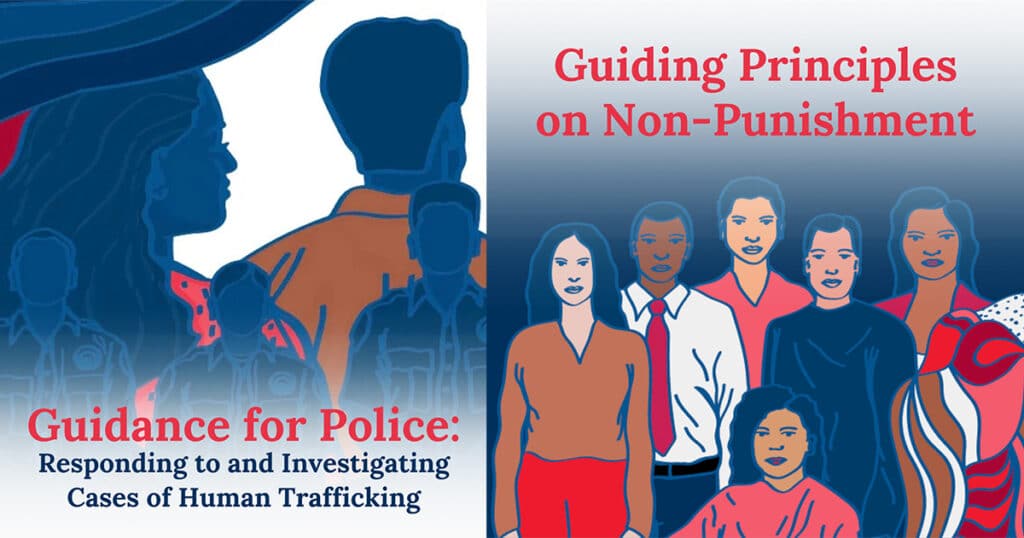Major new guidance released for human trafficking investigations and prosecutions
August 5, 2024
The Global Consortium on Prosecuting Human Trafficking, a joint initiative of Justice & Care and the McCain Institute at Arizona State University, have released two reports with recommendations to assist prosecutors and law enforcement in ensuring investigations and prosecutions of human trafficking cases are done in a victim-centered, trauma-informed manner.
The first report, “Guidance for Police: Responding to and Investigating Cases of Human Trafficking,” provides guidance for law enforcement on investigating human trafficking cases in ways that are responsive to both the needs of the victims and the prosecution.
It outlines strategies for identifying victims and perpetrators, collecting evidence, and properly interviewing victims.
In a survey conducted during the initial pilot phase, 95% of law enforcement personnel who were given the report indicated that they were likely or very likely to use the report’s recommendations in their future investigations. In addition, the “Guidance for Police” manual has been endorsed by INTERPOL, the world’s largest international police organisation.
The second report, “Guiding Principles on Application of Non-Punishment,” identifies 10 principles to help ensure human trafficking victims are not inappropriately punished for crimes they are forced to commit as part of their trafficking experience.

Prosecutors play an important role in recommending when and how non-punishment is applied, and these principles provide helpful guidance for what things prosecutors should consider as they are making these important decisions.
‘Human trafficking cases can be complex and difficult to prosecute’, James Clarry, global CEO at Justice & Care said. ‘These new reports, developed by experts who have first-hand experience of the challenges of human trafficking cases, will be valuable resources for prosecutors and investigators around the world. We hope they will help improve the effectiveness of human trafficking prosecutions while keeping the needs of survivors at the forefront.’
‘The data clearly shows that the number of human trafficking prosecutions worldwide is far too low compared to the estimated number of victims’, says Corban Teague, Director of the Human Rights & Freedom Program at the McCain Institute. ‘The reality is governments around the globe need to both increase the levels of human trafficking prosecutions while also still ensuring that these prosecutions are conducted in a victim-centered way.’
The Global Consortium on Prosecuting Human Trafficking was formed by the McCain Institute and Justice & Care in 2021 to address the unacceptably low rates of human trafficking prosecutions around the world. It brings together a network of prosecutors and anti-trafficking experts from 18 different countries to discuss best practices and provide concrete recommendations on ways to prosecute human trafficking cases more effectively.
Both manuals are available for download on our website here.


